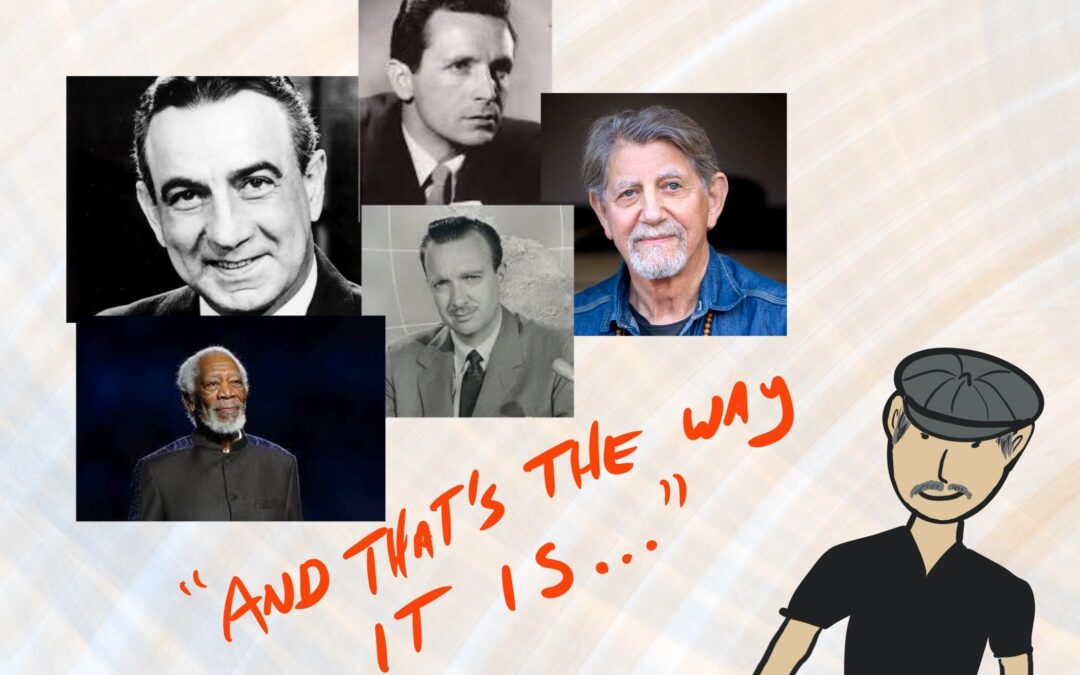I’m a huge fan of documentaries. Growing up I loved Victory at Sea and The World at War. Now I often find myself watching documentaries on PBS or Netflix.
What makes a good documentary, or a story, is a good narrator. If you were to have a documentary made about your life, who would you have narrate it? I have several people in mind, but they would coincide with different periods of my life.
For my life up to age 12 it would be news anchor Walter Cronkite. I remember watching the CBS evening news and his voice made everything seem official. “And that’s the way it is,” was his signature sign-off.
From 12 to 18, it would be John Facenda who narrated all those great NFL films in the 1970s. This would be a perfect backdrop to high school football and that entire “era.”
From 19 – 35, during my Navy career, the narrator would be Leonard Graves, who narrated the Victory at Seadocumentary. Pretty fitting for my Navy “era.”
From 35 to today, it would be Peter Coyote, who did Vietnam on PBS. A smooth voice with not a lot of emotion. This is for my corporate “era.”
From today on, it’s Morgan Freeman. This final season for me will be one of self-awareness, self-discovery, artistic expression, and inner peace. I can’t think of a better voice for this season.
Regardless, we all have a narrator for our life whether we know it or not. It’s the voice that tells you what you can and can’t do. Sometimes it’s there for your own protection. Most of the time it’s not supportive. I completed a positive intelligence boot came a couple of years ago and was able to identify four different saboteurs who were (and continually are) trying to narrate me into a trainwreck.
Who narrates your life? Do you live it and let the narrator tell the story, or does the narrator direct you? That’s a scary thought if your narrator doesn’t support you.
This week, think about that narrator in your professional life. Are they encouraging you, telling you to push on or is the narrator negative, pushing you to quit? We can change that voice any time we want. You just must recognize it and be honest with it. There is enough negativity around us to have to make up some additional internal drama.
New narrator = new narrative. What do you think?


